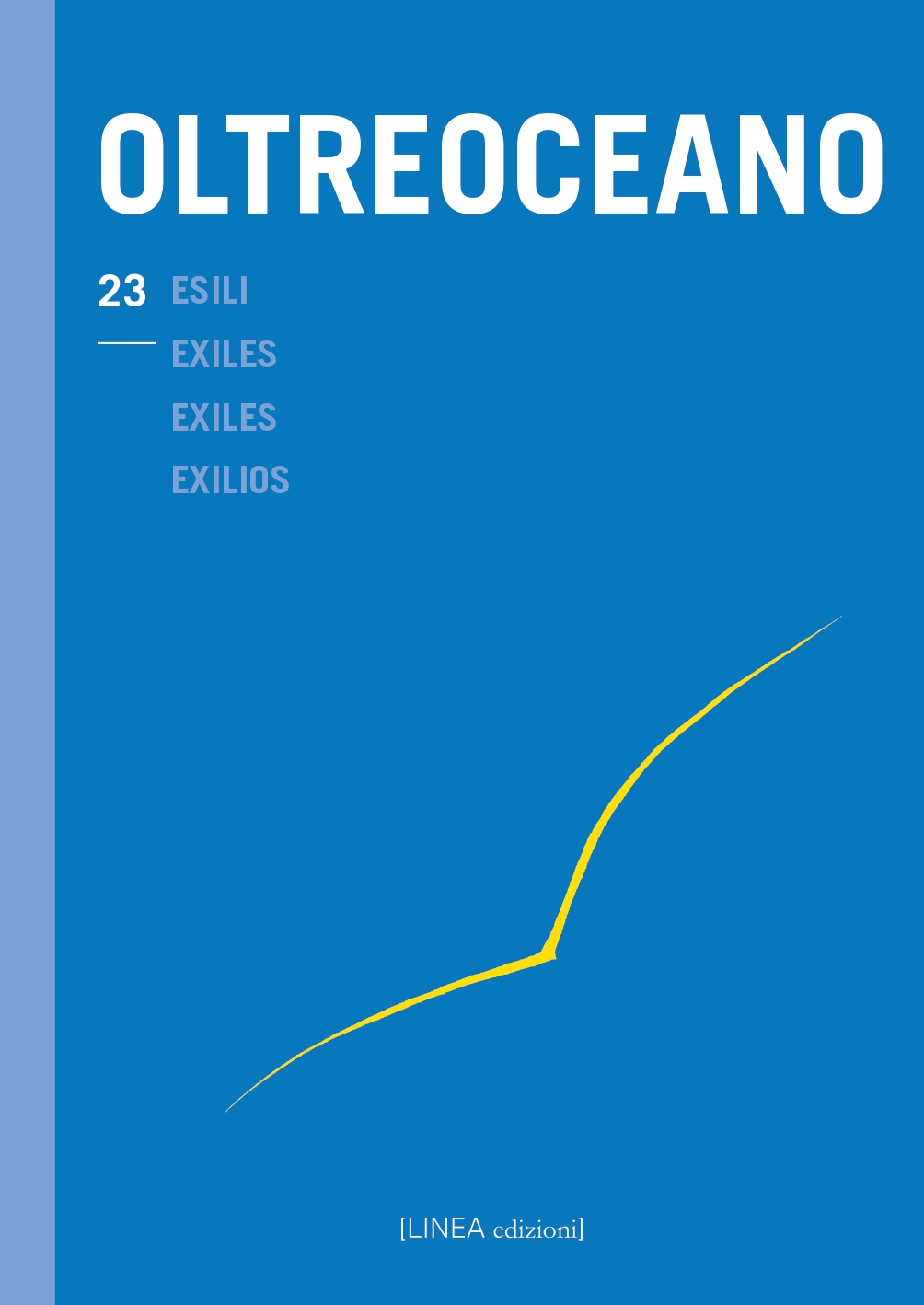A Chat Among Friends: In Conversation with Siegfried Gerhardt
DOI:
https://doi.org/10.53154/Oltreoceano95Keywords:
Exile, Painting, Siegfried Gerhardt, GermanyAbstract
We can become exiles for a number of diverse reasons; among them, there is the need to find work or flee from a totalitarian regime where freedom of thought is considered a crime. Siegfried Gerhardt’s experience as an expatriate for the latter reason bears witness to the deep bitterness that exiles feel when they end up in hostile places and with people who do not interact with them thus making them feel as intruders and hindering their integration and re-appropriation of identity. This feeling is even more painful in Gerhardt’s case since he considers himself as “an exile from his homeland” ‒ a statement which echoes a famous phrase by the well-known poet and writer Adelbert von Chamisso who spent his whole life painfully wandering as an exiled person: I am always out of place; I never feel in the right place. It is thus necessary to “exile oneself from exile”, to find strength and consolation in the beauty (and goodness) of art ‒ Dostoevskij’s eternal idea that saves us from the hostilities of life. This is what Siegfried Gerhardt has done.Downloads
References
Cicerone, M. T. (2016): De senectute-De amicitia. Testo latino a fronte. G. Pacitti (Ed.). Milano: Mondadori.
Chamisso, A. von (1997): La meravigliosa storia di Peter Schlemihl - L'uomo che vendette la sua ombra. Latina: L’argonauta.
Hermann, H. (2003): Sämtliche Werke. 1-20. Frankfurt am Main: Suhrkamp Verlag.
Downloads
Published
How to Cite
Issue
Section
License

This work is licensed under a Creative Commons Attribution-NonCommercial-ShareAlike 4.0 International License.
The authors undertake to comply with the following conditions, which are considered accepted at the time of submission of their contributions.
The sending of a text implies that it is unpublished and not submitted to be published elsewhere.
1. If accepted, the author shall confer on the publisher the right to publish and distribute it both in paper form and in the online electronic edition. The published articles will be downloadable and made available in open access.
2. Provided that it correctly indicates that the first publication took place in the journal Oltreoceano. Rivista sulle migrazioni the author has the right to: a) reproduce the article in separate extracts or collected in a volume; b) publish the article on their personal website or teaching site provided that these sites are of a non-commercial nature; c) deposit the article in online archives of a non-commercial nature, linked to the institution they belong to or as part of projects for the non-commercial dissemination and open access of scientific works.
The use of contributions by third parties, for commercial or otherwise unauthorized purposes, is not allowed. The publisher declines all responsibility for the unauthorized use of the material published in the journal.












